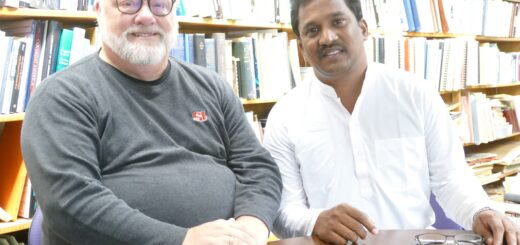Wenatchee native sounds alarm on sham educational programs
The New York Times published an interesting story on how companies are exploiting high school students and their parents by inviting them to participate in impressive-sounding events that in truth are primarily about getting students to pay big bucks for experiences that won’t help burnish their academic credentials.
The story includes quotes from Wenatchee native Marianne Stephens, the daughter of Dr. Fred and Ann Deal. She’s the college and career readiness coordinator at Shorewood High School in the Seattle area.
The Times story highlights an event called the Congress of Future Science and Technology leaders. Students had received an invitation signed by a Nobel Prize-winning scientist congratulating them on being nominated for “a highly selective national program honoring academically superior high school students.” The price tag was $985 to attend this event.
Apparently, many students had taken a college-planning questionnaire and had signed away personal details that were sold and shared with the future scientists event.
Stephens said she and other counselors see these kinds of things frequently. Kids get impressive-looking emails and want to know if attending such an event would help their chances of getting in to college. “I tell them, ‘sorry, but it’s basically marketing,’” Stephens told me. The events actually occur but attending such conferences are viewed by college admissions counselors as worthless, she told me.
It’s a pretty slick way of making money. Parents and students are typically anxious about getting into good schools and so when these letters are received they imagine that accepting the invitation will be helpful.
People in college admissions recognize these events as “pay to play schemes,” said Stephens. The same is true of mission trips to developing countries. Admissions counselors look more favorably, she said, on essays that highlight genuine life lessons that students have learned.
She encourages students and parents to have “ a sense of humor about the ridiculousness of applying to college.” It is an ordeal with an insane number of steps, she acknowledged. Except for a few select colleges, getting accepted is pretty easy, she pointed out. Stephens tries to bring a calming influence when she’s working with families on these issues, telling them “we didn’t do any of these for my kids.”
These kinds of schemes have always existed. Back in my day, a similar scheme was used to get people to pay to be part of “Who’s Who” publications. But it sure seems that the level of anxiety and fear in our culture is making these kinds of money-making schemes more prevalent.
These schemes can be discovered by thoughtfully reviewing the information they provide on websites, said Stephens. All of them have lofty-sounding titles and tout themselves as educational organizations. But digging deeper, she said, you find that they are owned by corporations who see this as a money-making deal.
For parents, it’s wise to dig deep and connect with college readiness counselors before writing big checks for these shams.



